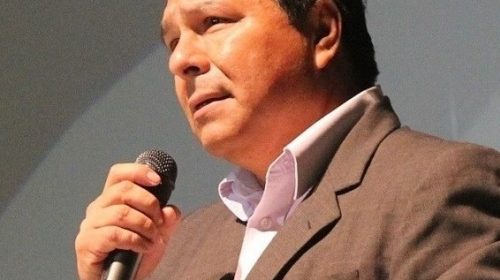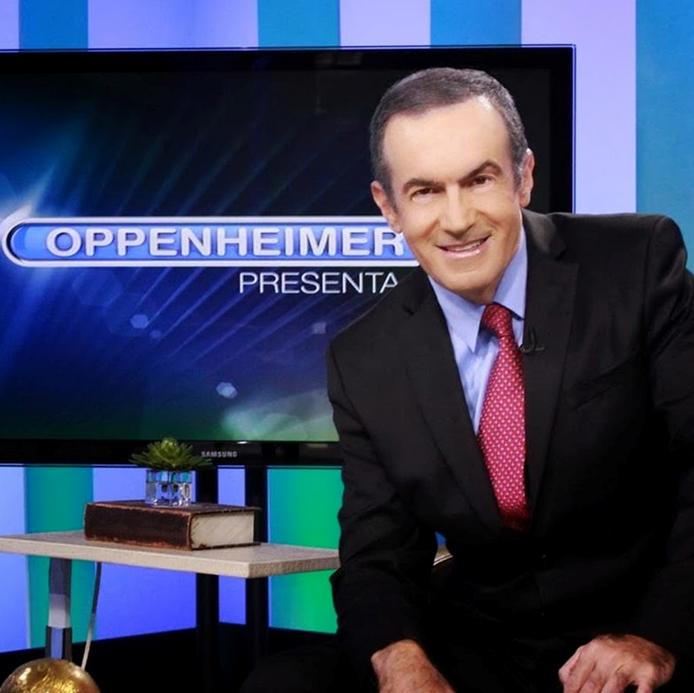By José Alberto Gaytán García*
In recent days, in the World Trade Center of Veracruz, was held the second encounter of teachers in Latin America. The event was organized by the Direction of Technical Education of Veracruz and the Organization of Teachers of the Americas (ODAEE). In this academic event highlighted the Oppenheimer conference, an Argentine journalist who began his career as a columnist for the Miami Herald,CNN political analyst, leads the television program Oppenheimer Presents, is the author of five books, including Cuentos chinos, Mexico: On the border of chaos, Chronicles of heroes and villains. The weekly column The Oppenheimer Report is published in 60 newspapers in the United States and Latin America. In 1987, he won the Pulitzer Prize, the highest distinction given to journalists in the United States.
The speaker said during his presentation that many Latin American governments are obsessed with the past, with its history and its heroes, who were made parties and tributes in exaggeration, according to Oppenheimer, such governments are too obsessed with the past and little interest for the future and science and education.
The speaker cited the case of the president of Venezuela, Hugo Chavez, who ordered to exhume the remains of Simon Bolivar for genetic studies and to clarify who killed the famous South American liberator, that the issue was a national event. In Argentina, President Nestor Kirchner, in the midst of a heated debate ordered to remove the remains of Gen. Juan Domingo Peron to a new mausoleum built 45 kilometers from Buenos Aires. In Honduras, it got worse when former President Manuel Zelaya, asked his counterpart of el Salvador, to hand over the remains of General Francisco Morazan for burial in Tegucigalpa. The government of Costa Rica did so because Morazan, Central American liberator, was born in Honduras, was executed in Costa Rica and was buried in El Salvador. Argentine journalist ends his comment, citing that Mexico could not be the exception, and recently the Mexican government ordered to change the place where the remains of the heroes of Independence, of course, all this amid military honors and celebrations.
To applause and laughter from the audience, Oppenheimer explained that there is nothing wrong with celebrating our heroes, the bad thing is that our governments are too obsessed with this matter and don’t look to the future. For example, he explained that when Bolivar died in 1830 and the phone wasn’t invented and the Internet was invented 150 years later and that those were different times, that in today’s world, a young engineer of 25 years works on Wall Street with the push of a button performs a transaction of millions of dollars from one country to another, which in this sense, there are countries that do not look to the past but only to the future and are betting hard on innovation and scientific development. According to Oppenheimer, an example of this vision of the future we can see in bookstores in China, India and Singapore, where hundreds of books on scientific topics focused on the future, while in the Mexican to Argentinean libraries the dominated issues are history.
In Singapore, says Oppenheimer, the bills had on the back pictures from the National University of teachers and teaching topics related to sports and the future and this small country of just four million people and a few natural resources, is the best example of successful investment in knowledge, today, Singapore is the ninth largest economy in the world thanks to its exports of high technology and its advanced public education system, in which 88 careers are “joint”, i.e. that are valid or equivalents in the major industrialized countries, by contrast, in Argentina or Mexico, it doesn’t exist on the public school system nor even one of this kind and therefore, our graduates do not have the slightest chance of competing in the international market.
In the section of Q&A journalist said that now more than ever, we must invest in knowledge and technology because the world market is small by global economic crisis and that in this scenario is further complicated by competition between exporting countries. When asked the public on its recommendations for improving the educational level of Mexico, he said the case of Finland is a good reference for our country, and he had the opportunity to interview Tarja Kaarina Halonen, President of Finland, who told him that their economic progress had three secrets: the first was education, the second education and third education, while there I visited several public schools and could see that in the classrooms have three teachers, one, the one that delivers class, another, who assists the teacher and the third is a tutor with a degree of expertise that helps kids after school. In Finland, there is no failure, so there is a struggle to get the highest grades, if the student fails, they fire the teacher says Oppenheimer.
Finally, the speaker cited the case of Brazil, where activists are promoting education a national agreement to pressure the government for more support to education, involve all levels of society, including artists, business owners, players, writers and media, one of the leaders of the project told Oppenheimer:
“Look, for us, the issue of education is so important that it can not be left to politicians or the government”.
jalbertogaytangarcia@gmail.com
A103R6/17
Acerca del autor

- José Alberto Gaytán García ha escrito artículos y ensayos de corte académico en diarios y revistas de México y de los Estados Unidos; ha participado en importantes proyectos académicos e impartido conferencias sobre temas de historia, tecnología y educación en el marco de las relaciones entre México y los Estados Unidos, tema en el cual realizó sus estudios de doctorado en The Graduate School of Internacional Studies de la Universidad de Miami.
 Cultura General10 agosto, 2022Michio Kaku: científico del futuro
Cultura General10 agosto, 2022Michio Kaku: científico del futuro Cultura General29 junio, 2020Miguel Alcubierre: viajero de las estrellas
Cultura General29 junio, 2020Miguel Alcubierre: viajero de las estrellas Cultura General6 abril, 2020Niños brillantes (Segunda parte)
Cultura General6 abril, 2020Niños brillantes (Segunda parte) Cultura General6 abril, 2020Niños brillantes (Primera parte)
Cultura General6 abril, 2020Niños brillantes (Primera parte)





